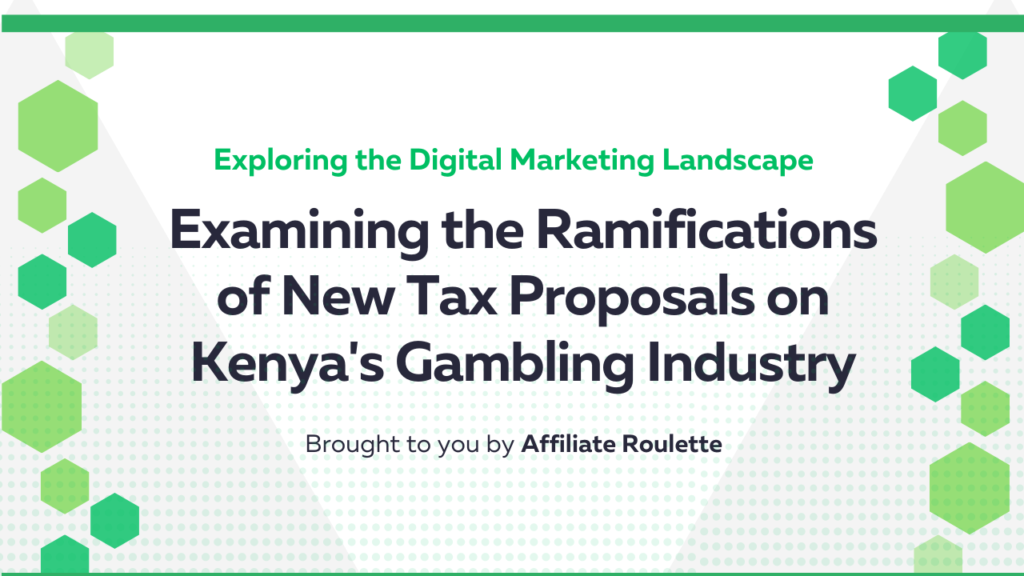Examining the New Tax Proposals on Kenya’s Gambling Industry


Introduction
In a landscape already reshaped by the imposition of a substantial 35% tax on gaming revenue, the Kenyan Treasury has set its sights on further regulatory changes with the introduction of the Tax Laws (Amendment) Bill, 2018. This proposal, which entails a 20% withholding tax on gambling winnings, heralds a potentially seismic shift in the country’s gambling sector, prompting scrutiny, debate, and speculation about its broader implications.
Understanding the Hybrid Tax Model: Should the Tax Laws (Amendment) Bill, 2018 pass into law, Kenya will adopt a hybrid tax model, a rarity in the global arena. This approach, which entails taxing both gambling companies and punters concurrently, underscores the government’s multifaceted strategy to address the multifarious social and economic challenges intertwined with the proliferation of gambling activities.
Unpacking the Impact on Players:
Central to the proposed regulatory framework is its direct impact on punters, who stand to bear the brunt of the envisioned withholding tax on their gambling winnings. By precluding punters from offsetting losses against their winnings, the proposed measure could potentially dampen enthusiasm for gambling activities, precipitating a downturn in overall industry participation.
Assessing the Financial Ramifications: For gambling enterprises grappling with a myriad of operational challenges, including the existing 30% corporation tax, the prospect of additional taxation on winnings looms large as a formidable threat to their financial viability. Against a backdrop of diminishing margins and escalating compliance burdens, the sustainability of these businesses hangs in the balance.
The Government’s Conundrum: While the government’s concerted efforts to mitigate the adverse social repercussions of rampant gambling are commendable, the efficacy of resorting to punitive taxation as a panacea remains a subject of contention. Striking a delicate balance between regulatory imperatives and industry sustainability emerges as an imperative for safeguarding tax revenues and fostering economic resilience.
Exploring Industry Responses:
In the face of heightened regulatory scrutiny and fiscal encumbrances, gambling enterprises may be compelled to pivot their operational paradigms and explore alternative revenue streams to circumvent punitive tax liabilities. Whether through digital transformation initiatives or diversification strategies, adaptability emerges as the linchpin of survival in an increasingly hostile regulatory landscape.
Conclusion:
As stakeholders grapple with the implications of proposed tax reforms on Kenya’s gambling industry, the imperative for nuanced policymaking and stakeholder engagement has never been more pronounced. Beyond immediate revenue considerations, the pursuit of enduring solutions that reconcile regulatory imperatives with industry viability emerges as a paramount imperative for charting a sustainable path forward.
For more informations about this article and our website Affiliate Roulette please contact Skype: live:.cid.7069b4c6a55fd2b6



